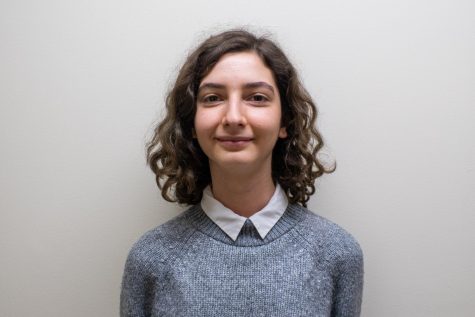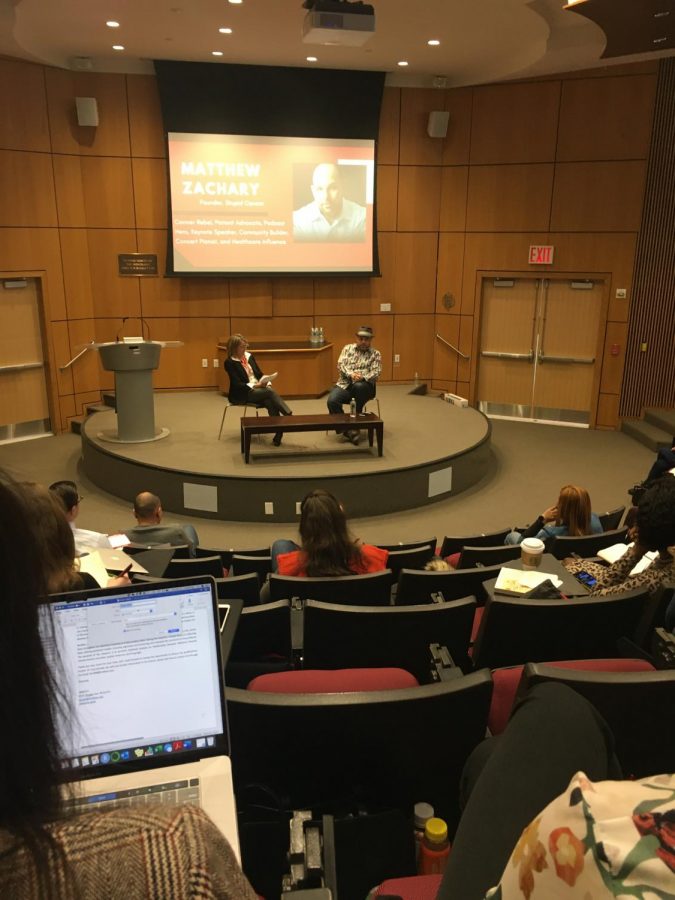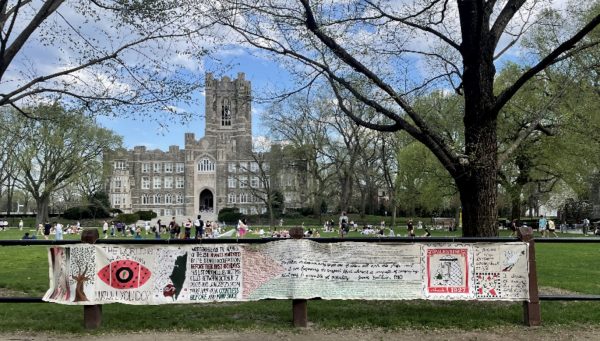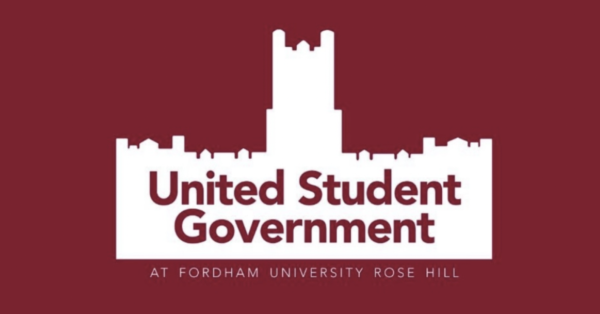Entrepreneurship Society Hosts 9th Annual TrepCon
The 9th Annual Fordham Entrepreneurship Conference, TrepCon, was presented at the Gabelli School of Business (GSB) at Fordham University Lincoln Center, last Saturday on Feb. 29. It hosted guest keynote speakers Michael Gelb, author of “How to Think like Leonardo da Vinci,” Matthew Zachary, founder of Stupid Cancer and Joan Ball, founder of WOMB Service Design Lab.
Trepcon also presented three breakout sessions, including panels on starting nonprofits and podcasts and a panel on starting out as a young author. The conference was sponsored by Deloitte, the largest professional services network in the world.
The conference began around 11 a.m. with an introduction from Dean of GSB Donna Rapaccioli about the growth of entrepreneurship in GSB, from just one course to a concentration and a minor. She went on to introduce Danielle Gallagher, Fordham alumnus and managing director at Deloitte, who spoke about the difficulty, self-sacrifice and hard work that surrounds entrepreneurship for people starting their own businesses.
Michael Gelb, the author of “How to Think like Leonardo da Vinci: Seven Steps to Genius Every Day” and 15 other books, was the first keynote speaker of the conference. In 2003, he received a Batten Fellowship in Innovation from The University of Virginia. Having begun his presentation with an impromptu demonstration of meditative exercises, Gelb continued to speak about his vision of Leonardo da Vinci as a personal mentor on the subject of creativity and innovation.
Afterward, Matthew Zachary, founder of Stupid Cancer, began his presentation on the effects of failures and unexpected roadblocks to success. He spoke about his experiences with brain cancer and the difficulties in getting accurate information about his treatment in the ’90s.
Zachary, a concert pianist who was diagnosed with a brain tumor, had medication that would permanently end his ability to play piano prescribed to him without being informed of this fact.
He saw the need for patients to advocate for themselves for treatment of cancer that takes their own livelihoods seriously as a concern.
“Advocacy is entrepreneurship in hiding,” said Zachary.
He said dealing with potential failures was an important topic to speak about to students.
“This is kind of what I wish I were told in college; be prepared to fail,” Zachary said. “It’s not so much about perseverance, it’s the circumstances. Your passion is only as good as the opportunity to not compete and find a little space in between. Being able to have been told that would have been really nice.”
One student asked Zachary how he felt about presenting at Fordham University.
“When I talk, it’s usually to corporate audiences and sales teams and medical conferences, and, you know there are cancer communities out there, but the idea of talking to just regular people, like students, without scaring them a little, is amazing for me,” he said.
He said that with culture and society changing, entrepreneurs have to be looking forward to paving the path for the next class, thinking about what being an entrepreneur means with the way new technologies and platforms have changed business in recent years.
“If I’m telling anything to students, it’s that my story is a ’90s story, a 2000s story, it’s in perspective to the kind of opportunities today, not do it like I do it,” Zachary said. “Past is prologue. Everything that happened back in the day is a prologue to what’s coming in the future, and history is a teacher. The thing to ask is ‘where do I fit in the gap I want to fill?’”
He emphasized the necessity of aspiring entrepreneurs to not expect things to get going right away.
“Everyone and their mother kept saying ‘Stupid Cancer is so incredible, how did you do it?,’ but we were an overnight success that took 14 years,” he said.
The final keynote speaker was Joan P. Ball, the founder of the WOMB service design lab, a consultation space for individuals and organizations. She spoke about the importance of founder resilience and the ability to transition in order to avoid the early failure of businesses started by entrepreneurs, as well as what she described to be the three primary aspects of the ability to transition: hardiness, resourcefulness and optimism.
Additionally, there were three breakout panels hosted by Fordham Alumni on topics such as starting a nonprofit with Jennifer Aleman of Peace Starts Now, a nonprofit dedicated to helping the disadvantaged with mindfulness sessions and art therapy, starting a podcast with Marc Giberti of the podcast Breakthrough Success, a podcast featuring interviews of and for entrepreneurs and future influencers and making it as a young author with Alex Cucchiara and JJ Meador.

Hasna Ceran is a junior double majoring in economics and Middle East studies. She began by writing the USG Column for Volume 101 and served as an Assistant...











